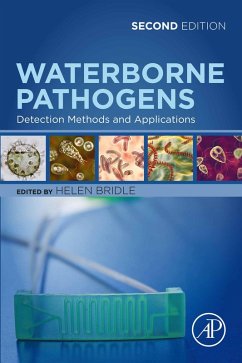Waterborne Pathogens: Detection Methods and Applications, Second Edition, gives an overview of advanced and emerging technologies in the detection of a range of waterborne pathogens. In addition, the book presents existing methodologies, highlights where improvements can be made, includes applications, and touches on the ways in which new technologies can be applied in water management. Finally, the book addresses issues of sample preparation (from sampling, to concentration and enrichment), a key stage in any detection protocol.
- Gives an overview of advanced emerging technologies in the detection of a range of waterborne pathogens
- Ensures the latest research developments, along with other changes in the sector, e.g., regulations and approaches are current
- Provides an overview of the existing approaches and key challenges before discussing sample processing and detection
- Presents existing methodologies and highlights where improvements can be made
Dieser Download kann aus rechtlichen Gründen nur mit Rechnungsadresse in A, B, BG, CY, CZ, D, DK, EW, E, FIN, F, GR, HR, H, IRL, I, LT, L, LR, M, NL, PL, P, R, S, SLO, SK ausgeliefert werden.


